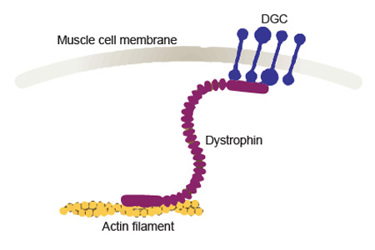Simple Western Advances Cutting-Edge Duchenne Muscular Dystrophy Research

Duchenne Muscular Dystrophy (DMD) is a severe genetic disease characterized by the progressive breakdown of skeletal and cardiac muscles, resulting in weakness, loss of cardiac function and premature death. The cause of DMD is frameshift mutations to dystrophin, a gene responsible for linking the actin network to transmembrane components of the dystrophin-associated glycoprotein complex (DGC). These mutations result in strong reduction or complete absence of functional dystrophin. While recent advancements in gene editing therapies are offering hope of restoring dystrophin function in human cells, reliable detection and quantification of dystrophin remains a challenge. As one of the largest proteins in the human body (427 kDa), its extreme molecular weight makes dystrophin very difficult to reliably detect, let alone quantify, with traditional techinques like Western blot.
Get unlimited access to:
Enter your credentials below to log in. Not yet a member of Bioprocess Online? Subscribe today.
